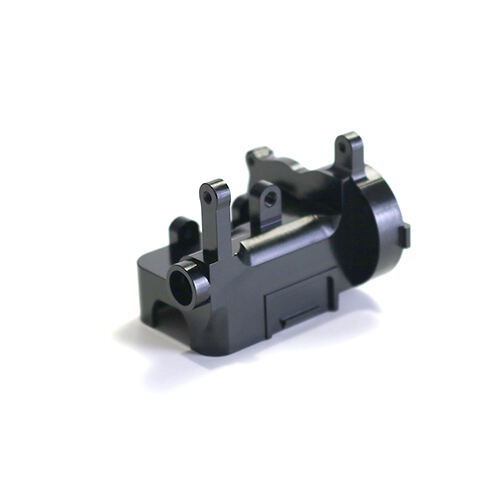CNC Technology: The Engine Driving the Future of Manufacturing
April 16, 2025 — Computer Numerical Control (CNC) technology is revolutionizing the manufacturing sector, with industries across the globe embracing it as a powerful tool for precision, efficiency, and innovation. From aerospace to consumer goods, CNC machines are reshaping production lines, offering solutions that are faster, more accurate, and cost-effective than traditional manufacturing methods.

What is CNC Technology?
CNC refers to Computer Numerical Control, a technology that uses computers to control machine tools. These machines are pre-programmed to perform specific operations like milling, drilling, turning, and even 3D printing. What sets CNC apart from conventional manufacturing is its automation—replacing the need for manual labor, reducing human error, and enabling high precision across large production runs or customized one-off projects.
Originally developed in the 1950s, CNC technology has rapidly advanced, with modern systems capable of handling complex geometries, multiple materials, and advanced processes such as laser cutting, waterjet cutting, and additive manufacturing (3D printing).
Industries Transforming with CNC Technology
· Aerospace: High-Precision Components for Critical Applications
In the aerospace industry, where every component must meet the highest standards of safety and performance, CNC technology is indispensable. Parts such as turbine blades, aircraft frames, and engine components are made with incredible precision to ensure the safety and reliability of flight systems.
CNC machines offer multi-axis capabilities that allow manufacturers to create complex, geometrically intricate parts that would otherwise be impossible or prohibitively expensive to produce with traditional methods. The ability to work with lightweight yet strong materials, such as titanium and high-performance composites, has made CNC the go-to solution for aerospace manufacturers.
· Automotive: Faster Production and Customization
The automotive industry also benefits significantly from CNC technology. From engine components to custom body parts, CNC machines allow manufacturers to produce high volumes of parts quickly without compromising quality. With the rise of electric vehicles (EVs), CNC machines are being used to create specialized components, including battery housings and electric motor parts, with high efficiency.
Furthermore, CNC technology has opened up new opportunities for mass customization in automotive design. Car manufacturers can offer bespoke options, creating personalized parts for consumers while maintaining mass production speed and cost-effectiveness.
· Consumer Goods: Meeting the Demand for Customization
The world of consumer goods is undergoing a transformation as demand for customization grows. Whether it's custom furniture, personalized jewelry, or unique tech accessories, CNC technology enables businesses to meet consumer desires for unique, tailor-made products without sacrificing production speed.
Brands are increasingly leveraging CNC systems for small-batch production, allowing for limited-edition items and customized products that were previously too costly or time-consuming to create. For example, furniture makers are using CNC routers to cut intricate designs in wood, while jewelry designers are using CNC milling machines to craft personalized pieces with fine details.
Advantages of CNC Technology
1.Unmatched Precision and Quality Control
One of the key reasons CNC technology has become so widely adopted is its precision. Whether producing a single prototype or thousands of parts, CNC machines can achieve incredible accuracy—often down to micrometers. This level of precision ensures that every part is produced to exact specifications, reducing the need for costly rework or quality control interventions.
Additionally, CNC technology offers consistency. Once a design is input into the system, CNC machines can produce identical parts time and time again, which is critical for mass production or industries with strict regulatory requirements.
2.Increased Efficiency and Speed
CNC machines automate the manufacturing process, reducing the time spent on manual tasks like setting up, adjusting tools, or monitoring production. These systems run 24/7, maximizing output while minimizing downtime. In industries like aerospace or automotive, where time is often a limiting factor, CNC technology helps speed up production cycles and meet tight deadlines.
Additionally, the reduction in human intervention and manual labor means there is less room for error, which translates into fewer defects and higher overall output.
3.Cost-Effectiveness for Small to Large-Scale Production
Historically, CNC machines were expensive and mainly used by large corporations. However, advancements in technology have made CNC machines more affordable and accessible to smaller businesses, startups, and even hobbyists. Desktop CNC routers and mills now allow entrepreneurs to prototype products quickly and efficiently, reducing the upfront costs associated with traditional manufacturing methods.
For larger manufacturers, CNC technology remains a cost-effective option for large-scale production, especially as machines become more energy-efficient and capable of automating more complex tasks.
The Future of CNC Technology
The future of CNC technology is bright, as ongoing innovations continue to push the boundaries of what’s possible in manufacturing.
1.Integration with Artificial Intelligence and IoT
With the rise of Industry 4.0, CNC machines are becoming smarter. Integrating artificial intelligence (AI) and the Internet of Things (IoT) into CNC systems enables real-time data analysis, predictive maintenance, and more efficient machine operation. AI algorithms can optimize cutting paths, detect issues before they arise, and help manufacturers get the most out of their equipment.
The IoT allows CNC machines to communicate with each other, enabling a connected, data-driven manufacturing process. This integration leads to increased efficiency, better resource management, and faster troubleshooting.
2.3D Printing and Additive Manufacturing
Another exciting development is the rise of additive manufacturing (3D printing) in CNC services. CNC machines that combine traditional subtractive manufacturing with 3D printing capabilities are gaining traction. These hybrid systems can rapidly create complex, lightweight parts while reducing material waste—perfect for industries like aerospace, where performance and material efficiency are paramount.
3.Collaborative Robots (Cobots)
CNC technology is also making strides in collaborative robotics. Cobots, or robots designed to work alongside human operators, are becoming increasingly common in CNC workshops. Cobots can handle repetitive or physically demanding tasks like loading and unloading materials, which frees up human workers to focus on higher-level operations such as design, programming, and quality control.
Conclusion
CNC technology is transforming manufacturing, enabling industries across the globe to achieve unprecedented levels of precision, efficiency, and customization. As CNC machines continue to evolve with advancements in AI, IoT, and 3D printing, the future of manufacturing looks increasingly automated, connected, and sustainable.
From the production of critical aerospace components to the personalization of consumer goods, CNC technology is driving innovation, reducing costs, and improving quality across industries. As businesses continue to adopt and integrate these tools, CNC machines will undoubtedly remain at the forefront of modern manufacturing.


